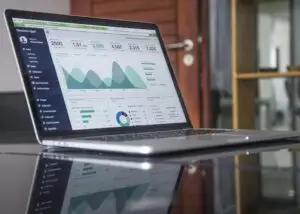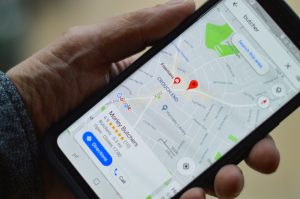
Welcome to the digital realm, where the fight to secure the top spot in business is as fierce as ever. Every company, big or small, is partaking in the rush to digital transformation, marking their online presence and engaging with their digital audiences. In this fast-paced race, staying ahead of the curve means mastering the art of SEO (Search Engine Optimization). However, there’s another player on the field that many often overlook – Local SEO. Today, we’ll unearth why Local SEO is a potent tool that businesses operating in specific geographical areas should not overlook.
Understanding Local SEO
Local SEO revolves around optimizing a business’s online visibility for local searches. This means when your potential customers search for a product or service that you offer in your operating area, with local SEO, you’ll be there in their search results.
The Power of Local SEO
Why is Local SEO essential for your business? Here are the compelling reasons that should inspire your local SEO journey:
1. Enhanced Visibility: With Local SEO, your business becomes more visible in local searches. It’s a window of opportunity for you to showcase what you offer to an audience that’s motivated to invest in local offerings. According to GoGulf, 46% of all Google searchers are looking for local information.
2. Boosts Organic Traffic: By deploying Local SEO, you are equipping your website to attract more organic traffic. Local SEO is tailored to direct local customers who are actively searching for your product or service online to your business.
3. Increased Engagement: Local SEO practices can significantly enhance your customer engagement rates, as they help you interact with a geographic-specific audience.
4. Competitive Advantage: Lastly, it’s not a universally adopted practice yet; hence focusing on Local SEO could give your business a competitive edge. A report from Go Gulf revealed that only 44% of businesses have claimed their Google My Business listing.
Expanding Your Local SEO Strategy
To harness the power of Local SEO, here are some pivotal areas to consider.
Google My Business Listing
The first step on your Local SEO journey should be setting up and optimizing your Google My Business listing. When this listing is correctly configured and updated, it makes it easier for customers to locate your business, understand what you offer, and know how to reach you. Don’t forget to add high-quality photos; according to Google, businesses with photos receive 42% more requests for driving directions.
Local Listing & Directories
Here, consistency is key. Make sure your business information (name, address, and phone number) is uniformly listed across various local directories and listing services. Reach out to well-known local directories like Yelp and Yellow Pages.
Customer Reviews
Encourage your customers to share their experiences by leaving an online review. These reviews impact the decision-making process of potential customers. As per a Local Consumer Review Survey, 82% of consumers read online reviews for local businesses.
Local Keywords
To optimize for local search, you need to incorporate local keywords into your website and content. Identify keywords that resonate with your local customer base.
Mobile-Friendly Website
In today’s digital era, mobile-friendly websites are no longer optional. A study from Statista revealed that in 2020, 50.81% of traffic worldwide was from mobile. Google also confirmed that it uses mobile-first indexing for over half the web pages shown in search results.
Deep Dive into SEO Terminology
Before we delve deeper, it’s crucial that local businesses understand some fundamental SEO terminologies:
Keywords: These are the words or phrases that users type into search engines when looking for a product or service. For instance, a user searching for a bakery within their vicinity would most likely type in “Bakery near me”.
SERP (Search Engine Results Page): This is the page that appears when a user executes a search on a search engine. The goal of SEO is to appear on the top results of SERPs for relevant keywords.
Backlinks: These are links that point towards your website from other sites, demonstrating to search engines that your content is trusted and relevant. High-quality backlinks can boost your website’s ranking.
The Art of Keyword Research
Keyword research is pivotal in executing a successful local SEO strategy. It’s crucial to identify the right local keywords that your potential customers are using to search for your products or services.
Start by getting to know your local audience and understanding their search behavior. Make use of keyword research tools like Google Keyword Planner or SEMrush to identify popular local keywords relevant to your business. Don’t forget to check the search volume, competition, and relevance of these keywords to ensure they can realistically bring valuable traffic to your site.
An essential part of local keyword research is “long-tail keywords”. These are specific phrases that users might enter when searching. For example, instead of simply typing “bakery”, a user might search for “best vegan bakery in downtown LA”. These long-tail keywords are invaluable because they tend to attract more quality traffic and perform well for local searches.
Harnessing the Power of Content
Content is the backbone of SEO. Create engaging, high-quality content that addresses the needs of your local customers. Blog posts, articles, infographics, videos, and how-to guides are all excellent ways to provide valuable content while incorporating your localized keywords.
An effective strategy is to create content that caters to your local audience. For instance, if you own a restaurant, write about local food festivals, introduce your local suppliers, or talk about your participation in community events. This kind of locally focused content not only resonates with your audience but also signals to search engines your relevance in the local context.
The Magic of Social Media
While social media is not a direct SEO ranking factor, it contributes significantly to your local SEO efforts. Platforms like Facebook, Instagram, LinkedIn, and Twitter can all boost your local presence in unique ways.
Whether it’s sharing your latest blog post, crowd-sourcing reviews, or announcing new local deals, social media is a great way to engage with your local audience and foster community relationships. It’s also a valuable tool for driving traffic to your website, which can have a positive influence on your SEO rankings.
Wrapping it Up: Local SEO Can be a Game-Changer
Local SEO isn’t just a digital marketing buzzword; it’s a game-changer. By improving visibility, driving traffic, and boosting conversions from local customers, it can propel your business to remarkable success. Integrating local SEO into your overall marketing strategy isn’t overly complex, but it requires careful planning and execution. Remember, it’s an ongoing effort that demands monitoring, optimization, and adaptation to stay effective in a dynamic digital environment.
As you embark on your local SEO journey, track and analyze key metrics like local search rankings, website traffic, and conversion rates to measure your progress. Use this data to refine your strategy and make informed decisions. Ultimately, the aim of local SEO is to connect your business with local customers actively seeking your products or services. By optimizing your online presence for local searches, you can distinguish your business from competitors and remain top-of-mind for potential customers in your area.
Whether you’re a small local business or a multinational corporation, don’t underestimate the power of local SEO. By leveraging its unique opportunities, you can position your business for long-term success and establish a strong presence in your local community.









